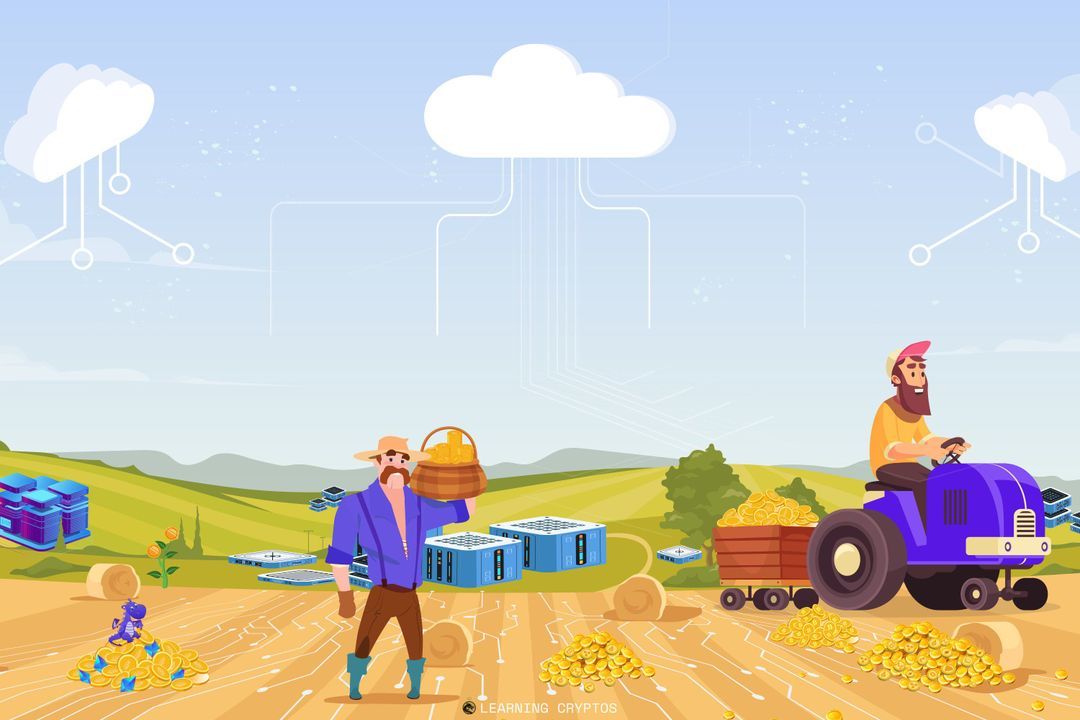The Concept of Yield Farming and Its Potential Returns

(Image Credit: CoinVN)
I made a post earlier about exploring the potentials of the upcoming EARN token on EarnPark, where I reflected on the fact that the EARN token has been intelligently designed to generate yield, enabling token holders to potentially earn extra income simply by holding the tokens. In this current article, we'll look at the concept of yield farming in general.
Yield farming is a popular concept in the world of decentralized finance (DeFi) that allows cryptocurrency holders to earn passive income by providing liquidity to various DeFi protocols. It involves depositing or "staking" digital assets into smart contracts, which are then used by the protocol to facilitate transactions and generate returns.

(Image Credit: Cointelegraph)
The primary goal of yield farming is to maximize the returns on your cryptocurrency holdings. By participating in yield farming, users can earn additional tokens as rewards for providing liquidity. These rewards typically come in the form of the protocol's native tokens or other tokens associated with the platform.
Yield farming relies on a mechanism known as liquidity mining, where users deposit their assets into liquidity pools. These pools enable the seamless exchange of cryptocurrencies and play a vital role in maintaining the liquidity of the DeFi ecosystem. In return for depositing their assets, users receive tokens representing their share of the pool.

(Image Credit: Cointelegraph)
The potential returns from yield farming can vary significantly, depending on several factors. These include the specific DeFi protocol chosen, the demand for the liquidity provided, the duration of the farming period, and the market conditions of the underlying tokens. In some cases, the returns can be extremely high, but it's important to remember that higher returns often come with increased risks.
Yield farming can generate returns through various mechanisms. One common method is by earning trading fees from the transactions executed through the liquidity pool. Another approach is by receiving a portion of the protocol's revenue generated from lending or borrowing activities. Additionally, yield farming may also involve participating in token distribution events, such as initial DEX offerings (IDOs) or airdrops, which can provide additional rewards.

(Image credit: RugDoc)
It's worth noting that yield farming is not without risks. The DeFi space is still relatively new and rapidly evolving, which means there is inherent risk associated with investing in these protocols. Smart contract vulnerabilities, impermanent loss (the potential loss of value when providing liquidity due to price fluctuations), and market volatility are some of the risks that investors should consider.
To mitigate risks and maximize potential returns, it is essential for yield farmers to conduct thorough research and due diligence before participating in any yield farming protocol. Understanding the protocol's mechanics, security audits, and community sentiment can help assess the potential risks and rewards involved.
In summary, yield farming offers cryptocurrency holders the opportunity to earn passive income by providing liquidity to DeFi protocols. While the potential returns can be attractive, it's crucial to evaluate the risks and perform comprehensive research before engaging in any yield farming activities.
47 comments